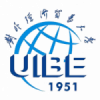


Jiannan Tang graduated from Beijing Foreign Studies University with M.A. in 2008 and Ph.D degree in 2011 and now she is a professor at a distinguished institution of higher learning in Beijing. She has devoted herself to the study of literature for more than twenty years, and is especially interested in the research in Western literature and ecocriticism. She used to spend half a year at the University of Nevada, Reno where the first doctoral program on environment and literature is offered. Later she continued her pursuit of ecocriticism at Cornell University. Nearly two years of visiting scholar experience helped her become an expert in this field. Now she is working on the comparison of Chinese and Western literature.

This course is a survey of the modern Chinese literature from 1918 to 2000. It will focus on the fiction, poetry and essays during 3 periods (1918 ~ 1949; 1949 ~ 1976; since 1976) in the 20th century. Through a close study of famous Chinese writers and poets such as Lu Xun, Yu Dafu, Xu Zhimo, Wen Yiduo, Mao Dun, Lao She, Shen Congwen, Ba Jin, Chang Eileen, Ai Qing, Chen Yingzhen, Wang Meng, Yu Hua, Gao Xingjian and Mo Yan, as well as some of the avant-garde writers such as Can Xue, students will have the opportunity to explore their own ideas of what the development of the Chinese literature in the 20th century is like, and be informed of one of the important sides of the modern Chinese culture, as well as the styles of literary creation of those great Chinese writers such as Lu Xun, Xu Zhimo, Lao She, Shen Congwen, and so on. Because the modern Chinese literature has been greatly influenced by many historical events during the 20th century as well as by Western thoughts, aesthetics, literature and culture, so the historical and Western influences on modern Chinese literature and the combination of the old Chinese literary tradition and the newly introduced Western literary tradition in modern Chinese literature are to be explored, too.
Lectures, readings, paper assignments, and discussions are designed to help you develop the skills to:
• Think aesthetically, read critically, and write and speak persuasively.
• Connect and integrate aesthetical appreciations and cultural understandings of the modern Chinese literature, and grasp the styles and creative skills of different Chinese poets and writers.
• Develop the skill of literary criticism in a combination of both Western and Chinese literary and cultural theories.
• Develop the practice of reading literary texts within their peculiar Chinese social, historical, cultural and mental contexts.
• Use primary and secondary sources to construct original, complex, logical and aesthetic interpretations of the modern Chinese literary works.
